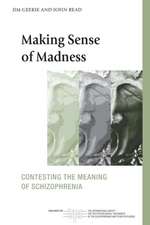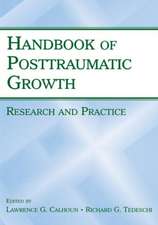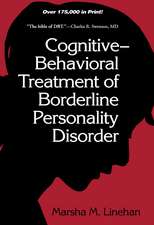The Mind-Body Problem Explained
Autor Niall McLarenen Limba Engleză Paperback – 10 noi 2012
Dr. Niall (Jock) McLaren is an Australian psychiatrist who uses philosophical analysis to show that modern psychiatry has no scientific basis. This startling conclusion dovetails neatly with the growing evidence that psychiatric drug treatment is crude and damaging. Needless to say, this message is not popular with mainstream psychiatrists. However, in this book, he shows how the principles of information processing give a formal theory of mind that generates a model of mental disorder as a psychological phenomenon.
This book shows...
- How, for ideological reasons, modern philosophy misses the point of the duality of mind and body;
- How to resolve the mind-body problem using well-defined principles;
- Why the entire DSM project is doomed to fail;
- Why the ideas of Thomas Szasz have failed to influence psychiatry;
- Where we go from here.
"The Mind Body Problem Explained is a thoughtful, insightful and provocative exploration of the nature of the human mind, and sets forth a powerful argument for rethinking the medical model of mental disorders. The current paradigm of psychiatric care has failed us, and Niall McLaren's book will stir readers to think of new possibilities."
--Robert B. Whitaker, author Mad in America: Bad Science, Bad Medicine, and the Enduring Mistreatment of the Mentally Ill
"It is impossible to do justice to this ambitious, erudite, and intrepidattempt to dictate to psychiatry a new, 'scientifically-correct' model theory. Theauthor offers a devastating critique of the shortcomings and pretensions ofpsychiatry, not least its all-pervasive, jargon-camouflaged nescience."
--Sam Vaknin, PhD, author Malignant Self Love: Narcissism Revisited
From Future Psychiatry Press www.FuturePsychiatry.com
MED105000 Medical : Psychiatry - General
PHI026000 Philosophy : Criticism
PSY018000 Psychology : Mental Illness
| Toate formatele și edițiile | Preț | Express |
|---|---|---|
| Paperback (1) | 196.54 lei 22-36 zile | |
| Future Psychiatry Press – 10 noi 2012 | 196.54 lei 22-36 zile | |
| Hardback (1) | 280.26 lei 22-36 zile | |
| Future Psychiatry Press – 20 noi 2012 | 280.26 lei 22-36 zile |
Preț: 196.54 lei
Puncte Express: 295
Preț estimativ în valută:
34.76€ • 41.21$ • 30.26£
34.76€ • 41.21$ • 30.26£
Carte disponibilă
Livrare economică 09-23 martie
Specificații
ISBN-13: 9781615991709
ISBN-10: 1615991700
Pagini: 330
Dimensiuni: 178 x 254 x 18 mm
Greutate: 0.57 kg
Editura: Future Psychiatry Press
ISBN-10: 1615991700
Pagini: 330
Dimensiuni: 178 x 254 x 18 mm
Greutate: 0.57 kg
Editura: Future Psychiatry Press
Descriere
The author, an Australian psychiatrist, uses philosophical analysis to show that modern psychiatry has no scientific basis. This startling conclusion dovetails neatly with the growing evidence that psychiatric drug treatment is crude and damaging.
Notă biografică
Niall McLaren is an Australian psychiatrist, author and critic. He was born and educated in rural Western Australia, graduating in medicine at the University of WA in Perth in 1970. He completed his postgraduate training in psychiatry in 1977 and subsequently worked in prisons and then in the Veterans' Hospital, with a year's break working in the far southern region of Thailand. From 1983-87, he studied philosophy in order to undertake a PhD jointly in psychiatry and philosophy of science. In 1987, he left Perth city to travel to the remote Kimberley Region of Western Australia as the region's first psychiatrist. As a psychiatrist with no staff, no hospital beds, no clinic and not even an office, nearly 2000km from the nearest psychiatrist, he was the world's most isolated psychiatrist. While there, he continued studying and writing and began publishing work highly critical of mainstream psychiatry. After six years in the bush, he moved to Darwin, the capital of Australia's Northern Territory, first as chief psychiatrist for the Top End, then in private practice, where he was closely involved with the large military population. He has since moved to Brisbane, in Queensland, and is emphatic that there will be no more moves. His work is highly original and he does not admit to any intellectual debt to psychiatrists, living or dead. When he graduated in psychiatry, he was aware that the field was not what it claimed to be. It was clear that psychiatrists routinely made major claims on the nature of mind and of mental disorder that were not justified in the literature and, he intuited, could never be justified. This led him to the philosophy of science which established that psychiatry lacked a formal model of mental disorder. In turn, this problem arose just because it had no model of mind. As a result, modern psychiatry lacks a basis in any known concept of science. It is, in fact, at best a proto¬science and, at worst, crude and highly misleading pseudoscience. Almost invariably, his work provokes bitter antagonism from mainstream psychiatrists. Over the past forty years, orthodox psychiatry has committed itself totally to the reductionist biological approach to mental disorder, with no possible alternatives. Despite massive increases in expenditure on mental health, there is absolutely no evidence to support the oft-repeated claims that psychiatry is making great advances and people are better off than they have ever been. Every figure indicates that as psychiatry extends its reach, the mental health of the population declines. McLaren argues that this is just because psychiatry is not a science. Because it lacks a formal model of its field of study, mental disorder, psychiatry is perpetually at the mercy of social and political fads and fashions. He maintains that biological psychiatry is nothing more than a passing fad and must eventually go the way of psychoanalysis, behaviourism and possession theory. In the meantime, it is doing an immeasurable amount of damage. He recently published the results of a lifetime of work on a model of mind for psychiatry, the biocognitive model, which leads directly to a model of mental disorder. This is the first time in the history of psychiatry that such a model has been available. The present work, Narcisso-Fascism, was designed as a test of the biocognitive model by applying it to a completely unrelated field. What emerges is an entirely novel understanding of the politics of extremism which confirms what has often been said, "The fascist is within me," but also offers a means of controlling the phenomenon. Given the present state of world politics, this is definitely needed. Learn more at www.niallmclaren.com













